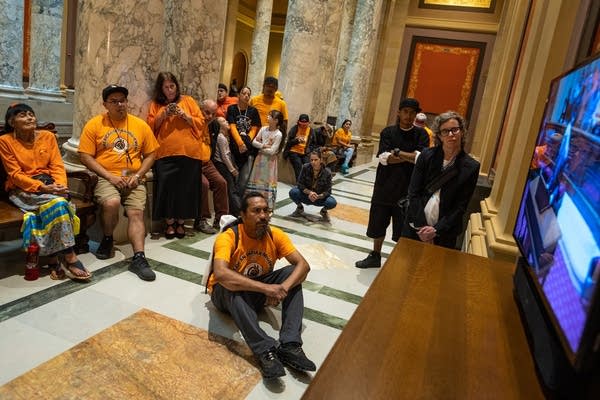The Indian Child Welfare Act is before the Minnesota Supreme Court again. Here’s why

Supporters of the Indian Child Welfare Act watch as Red Lake attorney Joe Plumer speaks during a Minnesota Supreme Court hearing at the State Capitol in St. Paul on Sept. 30, 2024. A second hearing in the case is scheduled for Tuesday.
Ben Hovland | MPR News
Go Deeper.
Create an account or log in to save stories.
Like this?
Thanks for liking this story! We have added it to a list of your favorite stories.


